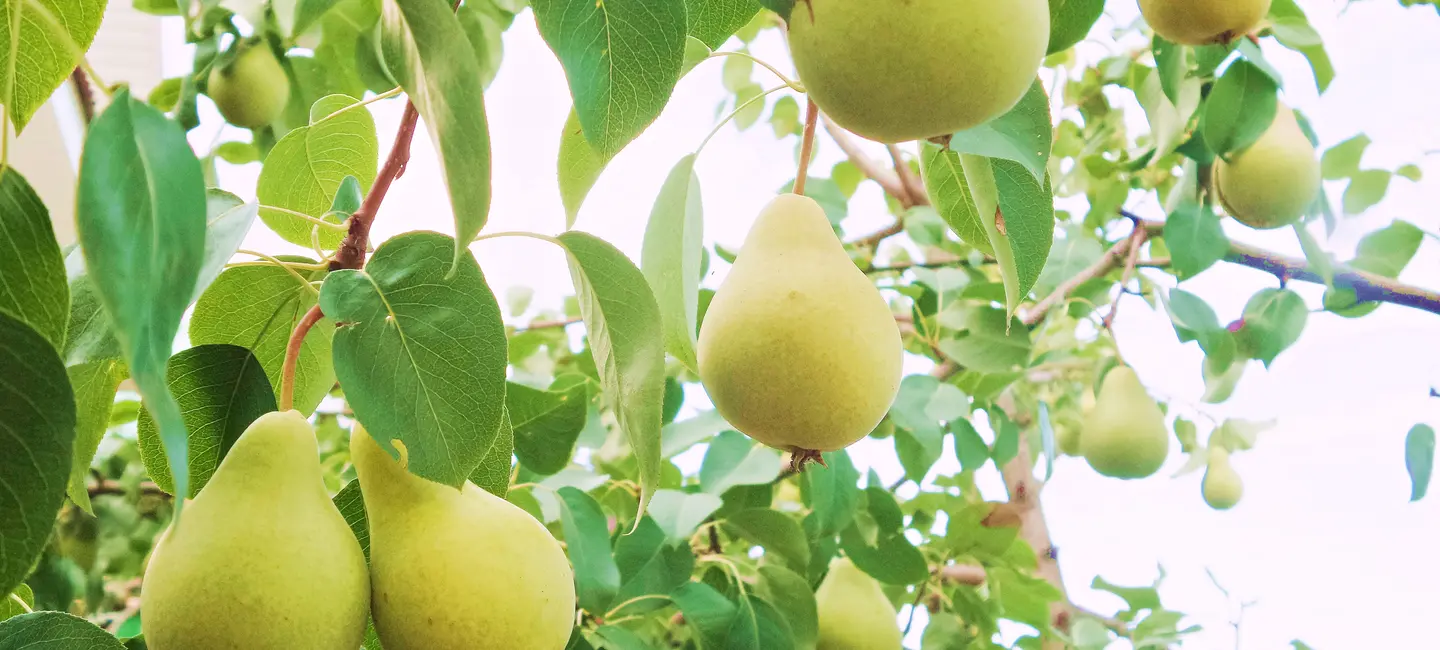
Pear is a tree. The pear fruit is used to make medicine.
People use pears for many conditions, including indigestion, diarrhea, constipation, nausea and vomiting, and liver scarring (cirrhosis), but there is no good scientific evidence to support these uses.
In foods, pears are eaten as fresh or preserved fruit, and used in cooking.
Is It Effective?
NatMed Pro rates effectiveness based on scientific evidence according to the following scale: Effective, Likely Effective, Possibly Effective, Possibly Ineffective, Likely Ineffective, Ineffective, and Insufficient Evidence to Rate.
- Athletic performance. Early research shows that taking a carbohydrate supplement obtained from pears before and during a long-distance cycle ride seems to improve overall cycling time in athletic men.
- Hangover. Early research shows that drinking Korean pear juice 30 minutes before drinking alcohol seems to help reduce hangover symptoms 15 hours later by a small amount.
- Obesity. Early research shows that eating pears 3 times daily between meals while on a calorie-controlled diet might help reduce weight by a small amount over 12 weeks.
- Cancer.
- An infection of the intestines that causes diarrhea (cholera).
- Constipation.
- Diarrhea.
- Fevers.
- Fluid retention.
- Indigestion.
- Nausea and vomiting.
- Liver scarring (cirrhosis).
- Obesity.
- Other conditions.
More evidence is needed to rate the effectiveness of pear for these uses.
Is it Safe?
Pear fruit contains a substance called pectin, which might help reduce diarrhea.
When taken by mouth: Pear is LIKELY SAFE for most people when eaten in normal food amounts. But, there isn't enough information to know if pears are safe when used as medicine or what the possible side effects might be.
Special Precautions & Warnings:
Pregnancy and breast-feeding: Pears are LIKELY SAFE when eaten in amounts found in food. There isn't enough information to know if pears are safe in larger, medicinal amounts. Stay on the safe side and stick with food amounts if you are pregnant or breast-feeding.
It is not known if Pear interacts with any medicines. Before taking Pear, talk with your healthcare professional if you take any medications.
There are no known interactions with herbs and supplements.
There are no known interactions with foods.
The appropriate dose of pear depends on several factors such as the user's age, health, and several other conditions. At this time there is not enough scientific information to determine an appropriate range of doses for pear. Keep in mind that natural products are not always necessarily safe and dosages can be important. Be sure to follow relevant directions on product labels and consult your pharmacist or physician or other healthcare professional before using.
Asian Pear, Nashi Pear, Pears, Pera, Peral, Poir, Poire, Poirier, Poirier Commun, Pyrus asiae-mediae, Pyrus balansae, Pyrus bourgaeana, Pyrus communis, Pyrus domestica, Pyrus elata, Pyrus medvedevii.
Information on this website is for informational use only and is not intended to replace professional medical advice, diagnosis, or treatment. While evidence-based, it is not guaranteed to be error-free and is not intended to meet any particular user’s needs or requirements or to cover all possible uses, safety concerns, interactions, outcomes, or adverse effects. Always check with your doctor or other medical professional before making healthcare decisions (including taking any medication) and do not delay or disregard seeking medical advice or treatment based on any information displayed on this website.
© TRC Healthcare 2024. All rights reserved. Use and/or distribution is permitted only pursuant to a valid license or other permission from TRC Healthcare.
